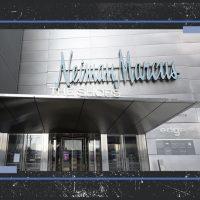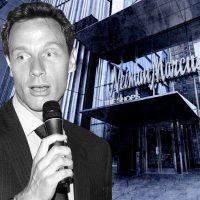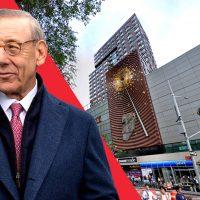Related Companies, one of the EB-5 program’s biggest proponents, is halting payments to such investors in Hudson Yards because of volatility caused by the pandemic.
In a letter sent last week, a copy of which was reviewed by The Real Deal, Related told EB-5 investors the project was facing a host of challenges, including delays and increased costs around the platform work at the site, as well as “extremely challenging conditions” in the residential condo market and the bankruptcy of its mall anchor tenant, Neiman Marcus.
As a result, the firm had “decided not to make distributions at this time.”
Related declined to comment on specifics, but a spokesperson said the distributions were optional, and all required payments had been made. The spokesperson blamed the decision on challenges to the wider economy, and said Related maintained a positive outlook about the program going forward.
The announcement illuminates deeper risks in the EB-5 program, which offers green cards to investors who put a certain amount of money into job-creating businesses in the U.S.
Referred to as the “crack cocaine of real estate finance,” the EB-5 program has poured billions of dollars into big developments. But in recent years, it has come under scrutiny for fraud, and some Chinese investors — the program’s biggest participants — have tried to get their investments back thanks to up to 15-year wait times for green cards. Now, investors are vulnerable to fallout from the economic downturn.
“We deal with about 80 different projects right now and we are seeing, across the board, people suffering, projects suffering,” said New York–based lawyer Mona Shah, who specializes in EB-5 but is not involved with the Hudson Yards investors. “Anything real-estate related is having a problem.”
Read more



Related has been an avid proponent of the program for years, and even spent some $1.4 million in 2017 to lobby Congress against abolishing it.
In June 2017, the company pushed for $380 million in EB-5 money to pay for the platform over the rail yards and its 35 and 55 Hudson Yards buildings. The sum was on top of the $600 million in EB-5 funds it had already raised. Shortly afterward, the developers sought an additional $30 million in funding.
Last year, in an effort to tighten up the program, the government increased the minimum investment from $500,000 in high-unemployment areas — or $1 million everywhere else — to $900,000 in high-unemployment areas, or $1.8 million elsewhere.
In recent months, Hudson Yards has been hit hard by the pandemic, which shuttered retail stores, halted construction and all but wiped out the condo market.
The bankruptcy of Neiman Marcus, announced in May, cast further uncertainty over the future of the mall. Though the retailer has insisted that mass store closures are not part of its bankruptcy plan, Related and development partner Oxford Properties Group have begun marketing Neiman’s 190,000-square-foot premises as office space.
In its letter, Related said that while the investors’ money wasn’t tied up in the retail side of the mall, the effects of the pandemic could impact the value of their investments. The bankruptcy of Neiman Marcus, the letter added, “represents a disappointing statement as to the current state of retail in the United States.”
Shah said the EB-5 program at Hudson Yards had generated a lot of early hype, and many investors considered Related a safe bet.
The latest development, the attorney said, shows that “even the largest real estate projects have a very real risk.”
Write to Sylvia Varnham O’Regan at so@therealdeal.com
